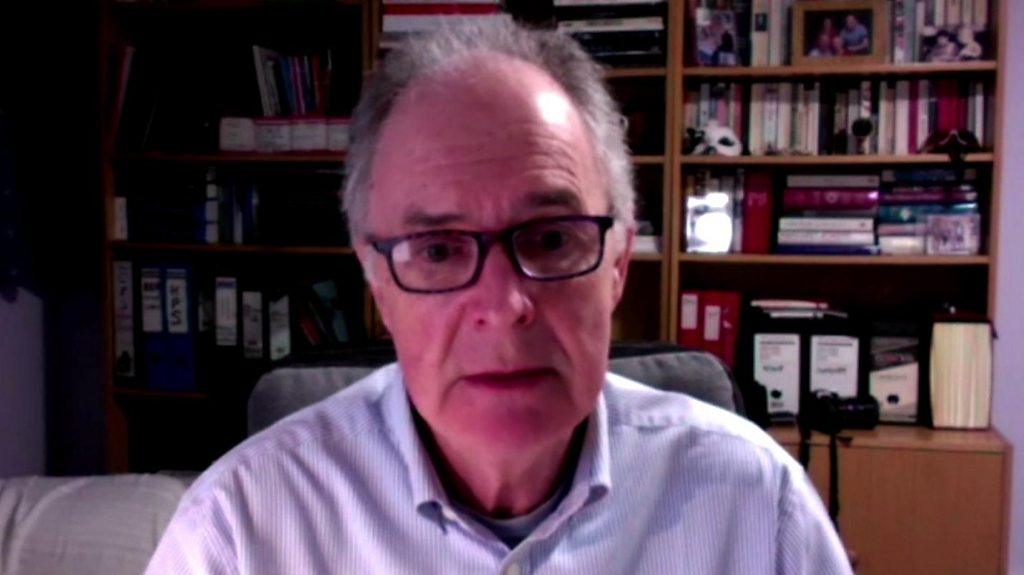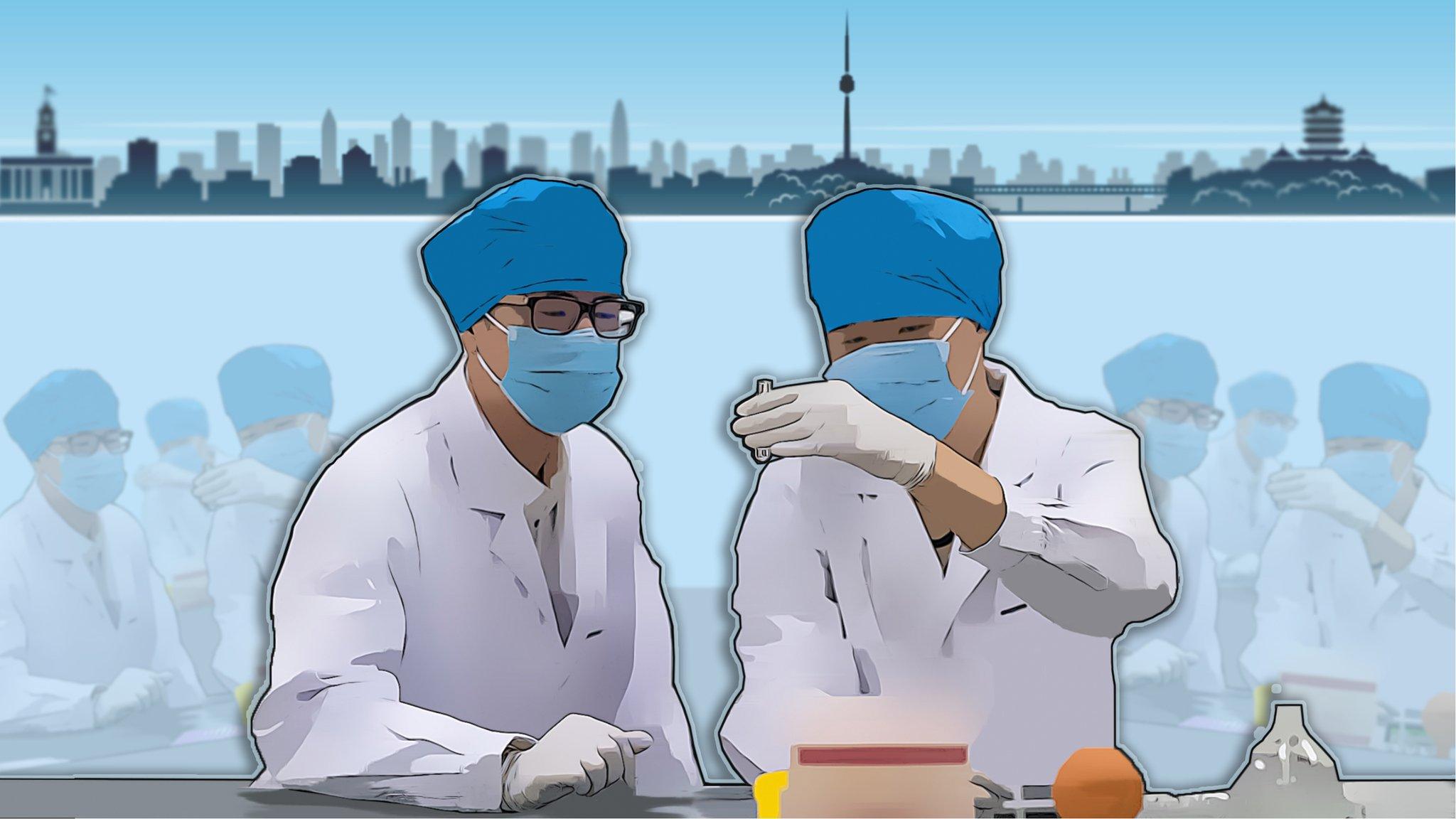Covid: UK scientist defends WHO fact-finding mission to Wuhan
- Published
Professor John Watson: Covid infecting humans through intermediate animal host "probable"
A member of the World Health Organization (WHO) team investigating the origins of Covid-19 has defended the credibility of its work amid mounting criticism.
Prof John Watson told the BBC that the trip to Wuhan, China - where the virus was first detected - was only a start and more research would be needed.
The US, UK and members of the team have complained of insufficient access given to the mission by the authorities.
China has insisted it was transparent.
The international team of experts concluded their trip to the city of Wuhan earlier this week without any definitive answers on what caused the outbreak.
Wuhan was the first place in the world where the virus was detected, in late 2019. Since then, more than 108 million cases and 2.3 million deaths have been reported worldwide.
The WHO mission began in January, following months of negotiations with Beijing, and was closely-monitored by the Chinese authorities.
What is the controversy about?
Speaking on the BBC's Andrew Marr Show, Prof Watson sought to allay doubts about the mission, saying the trip was "the beginning of a process... that was going to take months or years to complete".
He said that while Chinese authorities had not given the team all of the data about the early cases in Wuhan, they had seen a "great deal" of information.
His comments came amid growing criticism over the level of data scientists were able to access.
Covid-19 and Wuhan: Why don't we know more?
Fellow mission member Dominic Dwyer told several news outlets that Chinese authorities declined to give the team raw data on early Covid-19 cases.
"They showed us a couple of examples, but that's not the same as doing all of them, which is standard epidemiological investigation," he told the Wall Street Journal., external
"So then, you know, the interpretation of that data becomes more limited from our point of view, although the other side might see it as being quite good."
The US has urged China to make data available from the earliest stages of the outbreak, saying it has "deep concerns" about the WHO report. And British Foreign Minister Dominic Raab said he shared concerns about the level of access given to the team.
In his comments on Sunday, Prof Watson said it would have been "unusual for them [Chinese authorities] to hand over the raw data, but we looked at a great deal of the information in detail in discussion with the Chinese counterparts".
He also said a number of hypotheses remain about the origins of the virus, the most likely of which is that it moved from one animal to an intermediate animal host, and from there to humans.
He added the team had not "ruled out" the possibility that the virus was started by a lab leak in Wuhan, or that it could have spread through the transport and trade of frozen food.
The head of the mission earlier this week called the lab leak theory "extremely unlikely".
Related topics
- Published14 February 2021

- Published26 January 2021

- Published12 February 2021
